The deafening cacophony of opinions when it comes to the presence of women in politics is not new. The conversations around the theme had started sounding like a broken record long back. After what felt like a never-ending discussion, a tangible decision was finally made in the Parliament. The fact that we, as a country, are collectively contemplating the distance to be covered if we are to reach a better future is something to rejoice about. However, it is equally important to reflect on what we have achieved so far. It is important, especially at this juncture, to take a moment to reflect on our current situation so that the distance calculated from our reality to our aspirations is accurate.

This article is situated in the context of Kerala. Kerala has been revelling in the glory of being a “progressive state” for quite a long time. Various indicators that measure human development became fodder for this narrative. It has only gotten stronger over the years. This article examines a few remarks made recently by prominent politicians of leading political parties in the state and some related incidents. Apart from the fact that I have been spending time observing Kerala politics as a part of research work, the other rationale for speaking about this context is that if this is how we have been performing politics in a “progressive state”, it is highly likely that the situation is similar or even worse in other states in India.
A brief background of politics in Kerala
Though there are few women who have managed to scale to the higher echelons of politics in Kerala, in terms of strength and tenacity, the women in Kerala have had stunning examples to emulate. The list of women who stomped the male fortress goes back to the pre-independence period. Women like Mary Poonen Lukose, Annie Mascarene, Accamma Cherian, Dakshayani Velayudhan, AV Kuttimalu amma, Ammu Swaminathan and others had already left their marks in different spheres of political activity. Post-independence period has also given tall leaders such as KR Gowri, Shusheela Gopalan, and KK Shailaja among others. Recently the state assembly constituted an all-women speaker panel. The state also has the youngest female mayor and youngest female panchayat president in the country.
The numbers, however, give us a bleak picture. There are currently 12 female MLAs in the Kerala Assembly which consists of 140 seats. The fact that the representation of women, so far, has never exceeded 10% and that it has gone as low as 1% in 1966 and 1977 shows us the full extent of the grim reality (Agarwal 2021). This has remained as a blot on its otherwise remarkable history.
Words speak louder than actions?
Incidents of sexist comments have been frequently reported in the state. The incidents recounted in this section show that no political party can claim moral high ground anymore. The incidents of sexist remarks cut across party boundaries.
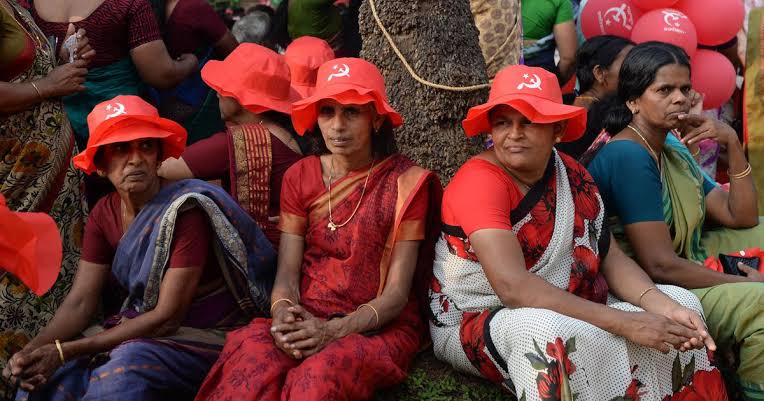
LDF is the ruling front in the state. MM Mani, one of the prominent politicians of the Left Front, has been known widely for sexist remarks. One would assume that his own journey of braving discrimination would give him a better lens to understand society. Unfortunately, this has not been the case. Another interesting fact to note is that he is a father to five daughters, which makes one wonder what more would it take for a person to empathise with the plight of women. Recently, defending Chief Minister Pinarayi Vijayan’s daughter in a row, MM Mani said that people should not drag women who sit in their homes into matters of politics. He continued his statement saying issues about politics should be spoken to men and such conversations should leave women alone.
A few months back, former minister EP Jayarajan said that young women in the guise of men were waving black flags at Chief Minister Pinarayi Vijayan. To make things worse, when asked for an explanation about the comment, Party Secretary MV Govindan said ‘He merely pointed out that Police could not recognise them. He (Jayarajan) was just asking how would they recognise a girl if she has cut her hair like a boy, wears boys’ clothes and looks like a boy.‘
On International Women’s Day KPCC president K Sudhakaran is reported to have addressed a gathering by saying, ‘As today is women’s day, we have seated two women leaders on the left and right of the dais at this media address‘.
Leaders of other political parties have also not done any better. On International Women’s Day KPCC president K Sudhakaran is reported to have addressed a gathering by saying, ‘As today is women’s day, we have seated two women leaders on the left and right of the dais at this media address‘. Likewise, BJP leader K Surendran also received flak for saying women leaders in the CPI(M) have become fat after looting and for referring to them as ‘poothana’ (‘demoness’).

The remarks mentioned in this section are made by powerful leaders who hold important offices in their respective political parties. Such comments, made time and again, create a space where women would think twice before making an entry. This is not the first-time incidents of sexist remarks have made the media and in the absence of some repercussions, this is certainly not going to be the last.
Cyber attacks and ‘masculine strength’ in the Kerala political scene
Moving from political leaders to the public, the approach towards women has not been very different. The widespread use of social media has opened up another platform to hurl insults and sexist comments. The rigour and vibrancy of election discussions usually percolate into the social media space. However, unlike a public discussion, the anonymity of the space helps bring out the vulgar side of the discourse. The Puthuppally bypoll, which unfolded under heavy media gaze due to the curiosity to find out who would fill the shoes of a giant leader, was fought equally on the ground and on social media.
Achu Oommen and Geethu Thomas. Achu was trolled heavily for her clothes and accessories, whereas Geethu was attacked alleging that she was trying to garner sympathy through her pregnancy
While all three main political parties fielded male candidates, two people who got attacked to the point that they had to file police complaints were two women, Achu Oommen and Geethu Thomas. Achu was trolled heavily for her clothes and accessories, whereas Geethu was attacked alleging that she was trying to garner sympathy through her pregnancy. The interesting fact to notice here is that both of them were not silent spectators during the election campaign. They were actively campaigning for the respective candidates. Women, even when they are not candidates themselves, if spotted in the peripheries, are not spared. Though it could have been part of the political game to bring each other down, the fact that they targeted close female relatives who were active in politics speaks volumes about the ethos of politics.
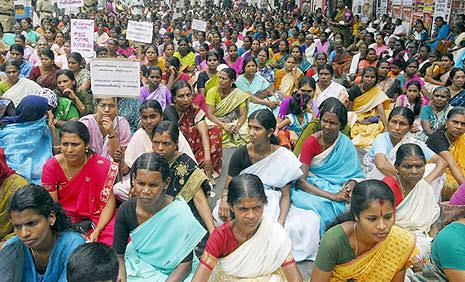
Another recent incident that cannot go unmentioned when speaking about derogatory comments is the absolutely unnecessary remarks made by actor Alencier Ley Lopez. Receiving the state film award, the actor said in his speech that the statuette of a female is ‘tempting‘. Just when one thought that this could not get any worse, he surprised the crowd by saying ‘We have a Chief Minister who is the epitome of masculine strength. So, we should be awarded figurines that reflect the strength of man’.
Many, including R Bindu, Minister for Higher Education, condemned the statement in strong words. The actor, however, refused to retract his statement or make an apology. The fact that the state is yet to see a woman adorn the Chief Ministership perhaps shows us that this is not just an actor’s mindless babbling but the political parties in the state catering to a public sentiment that respects the “masculine strength” of a Chief Minister.
‘Leaning in’ and masculine ethos in Kerala politics
In the year 2013, Nell Scovell and Sheryl Sandberg came out with their book Lean In: Women, Work and the Will to Lead which became an instant best seller. This brand of self-empowerment feminism asked women to ‘lean in’ to the existing system. Here the blame fell squarely on women and their bad decisions in life. The book advocated ways to succeed in the existing conditions. According to the book, all that was left for us to do was to figure out how to navigate the systemic impediments, rather than investing time in changing them.
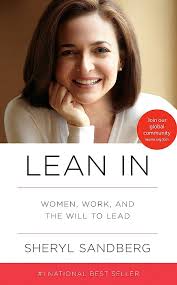
The book drew flak from different corners, the most notable among them being made by former first lady Michelle Obama who said: ‘I tell women, that whole ‘you can have it all’-nope, not at the same time; that’s a lie. It is not always enough to lean in, because that shit doesn’t work all the time‘. The book was intended for a corporate setting but more often than not, the solutions that women everywhere receive usually leave the masculine structure intact while making some space for women to squeeze in. The point of bringing the ‘lean-in’ discussion to this conversation is to show that any solution can become a ‘lean-in’ solution if not followed by more comprehensive changes.
Richard Fox and Jennifer Lawless in their acclaimed book It Takes a Candidate speak about the ‘masculinised ethos’ of the political institutions. Fox and Lawless write, ‘The organs of governance were designed by men, are operated by men, and continue to be controlled by men; even if they want to be more inclusive of women, they do not often know how. As a result, women and men have different experiences and develop different impressions when dealing with the various arms of the political process. Whereas political institutions overtly and subtly facilitate and encourage men’s emergence into politics, they often continue to suppress women’s willingness to launch political careers.’
After the introduction of the women’s reservation bill, it feels like we are on the cusp of a change.
After the introduction of the women’s reservation bill, it feels like we are on the cusp of a change. In a state like Kerala, where we have had tall women leaders, 50% reservation at the local self-government level and active participation of women in different spheres of society, if the political leaders and the public still create and enforce a ‘masculinised ethos’, then one can hardly place one’s hopes on a bill alone. It requires collective and conscious efforts from leaders and the public to facilitate the entry of women.
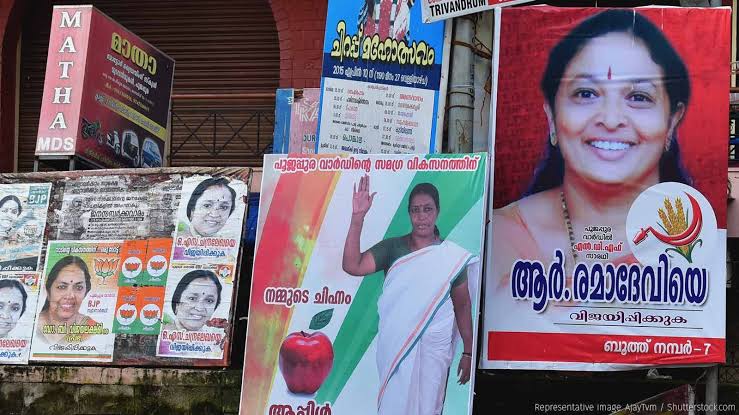
Like every young woman, I am impatient to see women come forward and occupy the places that were denied to them for so long. The intention of this article was to remind ourselves that we, as a society, have not evolved into accommodating women in public sphere. As a society, we still appear clueless as to how to deal with powerful women with strong opinions. A systemic solution to a systemic problem can also prove to be ineffective if not accompanied by a change in psyche. A ticket to higher echelons of politics is no small feat but our aspirations should be directed not merely towards ensuring an entry but also at ensuring that they have an atmosphere to function. As mentioned at the beginning of this article, the distance between our reality and our aspirations has to be calculated time and again, lest we fall prey to a false sense of victory.
About the author(s)
Shreya K Sugathan is a Research Scholar, at the University of Hyderabad.
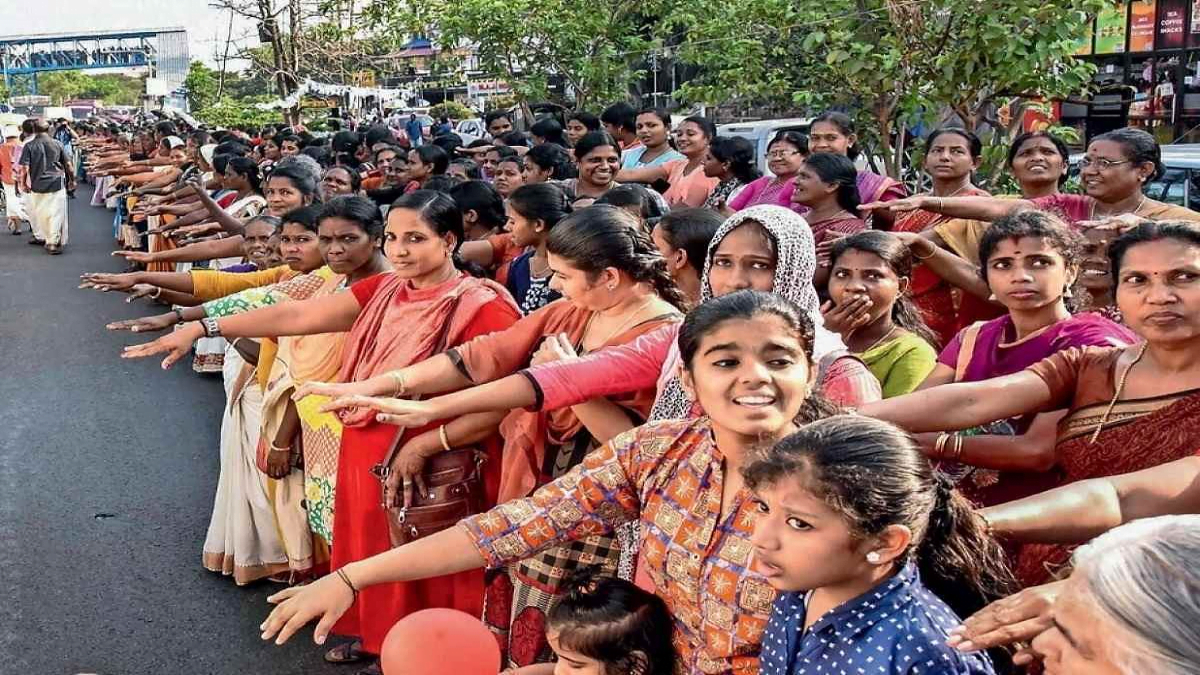





Well written!!
The society needs to reframe to accommodate more ladies into decision making positions and politics..